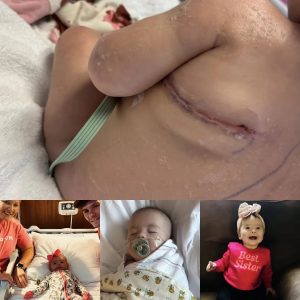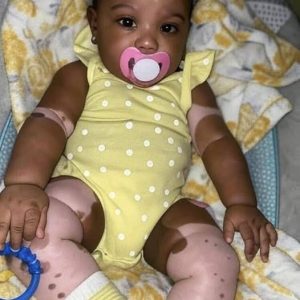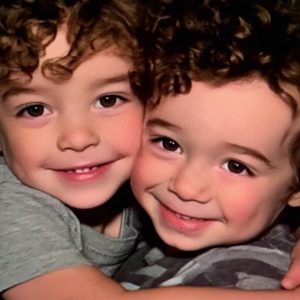Thanksgiving had promised a quiet, cozy celebration—just our family of four at home, free from the stress of in-laws or crowded airports. The house smelled of butter, garlic, and cinnamon, with pies cooling on the counter and rolls rising in the oven. For a while, it felt perfect: Emma and Noah played wildly in the living room, Mark relaxed, and I flitted between tasting, basting, and adjusting oven racks, fully immersed in the comforting chaos of a holiday at home. The kitchen hummed with warmth, the kids’ laughter filled the rooms, and dinner came together seamlessly: the turkey rested beautifully, the gravy thickened, and the desserts emerged unscathed. I felt a rare moment of calm, imagining this Thanksgiving might actually go off without a hitch.
But as we sat down at the table, something was wrong. Mark, my husband of nine years, barely touched his food, eyes glued to his phone, jaw tight in stress. Repeated attempts to check on him were met with distraction or silence. Then, mid-story from Emma about her mashed potato kingdoms, he abruptly pushed back his chair, murmured he needed to “step out for a bit,” and left. The kids barely noticed, but I stood frozen, spoon in hand, as the front door clicked shut behind him. I told myself it must be a work emergency, just an hour or so. That hour, however, stretched into the night, and every message went unanswered. His location was turned off, his phone went straight to voicemail, and panic replaced my earlier calm. By Saturday, after two sleepless nights and missed family rituals, I was at my breaking point and had even contacted the police, who told me to wait until Monday to file a report.
When Mark finally returned, my emotions teetered between fury and disbelief. He appeared worn, haunted, and smaller somehow, carrying in his arms two newborn babies. They were swaddled and fragile, tiny mouths forming sleepy “O”s, fists curling and uncurling. My whispered question—whose babies?—was met only with a quiet “Sorry.” The explanation that followed was chaotic but urgent: during dinner, Mark received a desperate message from Cindy, his young assistant, pleading for help. She had arrived at work holding her sister’s newborn twins, threatened by a violent boyfriend who had a history of abductions. With no one else to turn to, she handed the babies to Mark, who was thrust into a crisis he had never anticipated. His intention had been to protect them, keep them safe for the night, and return home to explain everything, but fear of how I’d react made him stay silent.
Mark recounted how he scrambled through the freezing night, trying to care for the babies, get them warm, and ensure they were fed, all while navigating panic and uncertainty. When Cindy returned, hysterical, she explained the danger and the threats they faced. My initial anger softened as I realized the moral and immediate stakes: Mark had risked everything to protect two innocent lives. Once the truth was clear, we involved the police, confirming the sisters’ story and securing a safe path for the twins. The officers took the situation seriously, coordinating with social services, filing restraining orders, and ensuring the violent boyfriend could not access the babies. Relief came in waves when we learned he was caught trying to break into Cindy’s apartment shortly afterward.
That night, as the household settled into quiet after the children slept, Mark and I spoke openly about fear, anger, and trust. He apologized for leaving without explanation, and I admitted my panic, imagining worst-case scenarios. In that fragile moment, we reconnected, acknowledging both the chaos of the day and the choices that had been made out of instinct and love. I reminded him that next time, if a crisis demanded such swift action, he had to take me with him. In doing so, we affirmed not only the partnership that sustains our family but also the shared responsibility and trust required when life spirals beyond expectation.
Our Thanksgiving ended not with comfort food or tradition, but with lessons of courage, trust, and human compassion. The day had begun with a quiet, orderly vision and escalated into a crisis involving missing hours, emergency care, and interactions with the police. Yet, through it all, lives were protected, threats were neutralized, and our family faced the storm together. The experience reshaped my understanding of love—it is not only in the perfect table setting or the laughter of children, but in how we respond when someone’s life hangs in the balance and when we finally come home to face those waiting at the door. The holiday, jagged and unpredictable, became unforgettable not for the feast, but for the urgent humanity it revealed.




